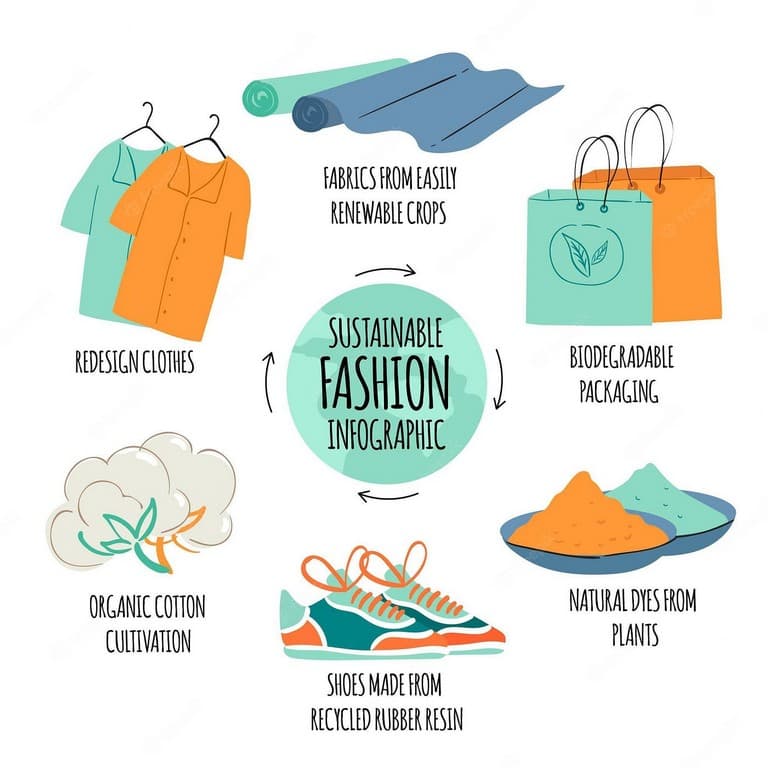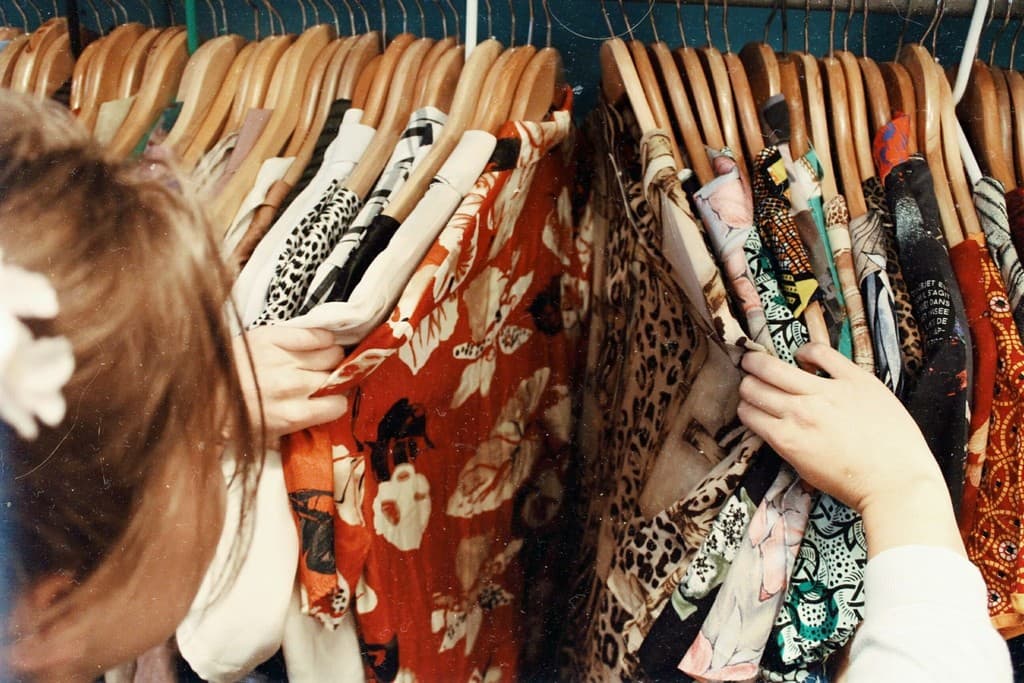Sustainable Fashion and Its Importance In Daily Life
- Fashion Design
Sustainable Fashion and Its Importance In Daily Life
Contact us
Bengaluru
Campus 1 : JD School of Design, No. 18-1, Brigade Road, Bengaluru,Karnataka – 560 001.
Campus 2 : No. 40, Swan House, 4th Cross, Residency Road, Bengaluru, Karnataka – 560001.
Goa
Musthtifund Saunstha , Near Mahalaxmi Temple,Dada Vaidya Road, Goa-403001
Sustainable Fashion: Weaving a Greener Future for Our Clothes
Sustainable fashion is a broad term that encompasses a range of practices that aim to minimize the fashion industry’s environmental and social footprint. It considers the entire lifecycle of a garment, from the sourcing of raw materials to its production, distribution, use, and end-of-life.
Key Principles of Sustainable Fashion:
- Environmentally friendly materials: Use organic cotton, recycled polyester, hemp, and other eco-conscious fabrics that require fewer resources and produce less pollution.
- Ethical production: Ensuring fair wages and safe working conditions for garment workers throughout the supply chain.
- Reduced water and energy consumption: Implementing water-saving dyeing techniques and using renewable energy sources in production.
- Waste reduction: Minimizing waste through efficient design, upcycling and recycling old clothes, and extending the lifespan of garments.
- Circular economy: Designing garments that can be easily repaired, reused, or recycled at the end of their useful life.

Medium
Why is Sustainable Fashion Important?
The fashion industry is a major polluter, contributing to approximately 10% of global carbon emissions, 20% of wastewater, and 8-10% of marine microplastic pollution. It is also a significant contributor to deforestation, water scarcity, and soil erosion.
The environmental impact of fashion is undeniable, and sustainable fashion offers a way to mitigate this damage. By choosing sustainable clothing, we can:
- Reduce our carbon footprint and combat climate change.
- Conserve water and other precious resources.
- Protect ecosystems and biodiversity.
- Minimize textile waste and pollution.

Lifestyle Asia
Beyond the environment, sustainable fashion also promotes social responsibility. By supporting brands that prioritize fair labor practices, we can help to ensure that garment workers are treated ethically and paid a living wage. This can contribute to poverty reduction, improved working conditions, and empowered communities.
Examples of Sustainable Fashion Brands:
- Patagonia: A leading outdoor apparel brand known for its commitment to environmental activism and using recycled materials.
- Everlane: A transparent clothing brand that focuses on ethical production and high-quality basics.
- Stella McCartney: A luxury designer who champions sustainability and uses innovative eco-friendly materials.
- Veja: A sustainable sneaker brand that uses recycled and organic materials and sources its rubber directly from Amazonian communities.
- The Reformation: A vintage-inspired clothing brand that uses recycled and deadstock fabrics.
Here are some examples of Bollywood influencers who support sustainable fashion, along with the ways they’re making a difference:
- Dia Mirza: UN Environment Goodwill Ambassador for India, Dia Mirza is a vocal advocate for sustainable living and has been at the forefront of promoting eco-conscious fashion choices. She frequently wears outfits made from recycled materials, supports sustainable brands, and has even walked the ramp for H&M’s Conscious Exclusive collection made from recycled polyester.
- Anushka Sharma: This leading actress has embraced a vegan lifestyle and is conscious about her fashion choices. She has spoken out against fast fashion and encourages fans to buy less and buy better. She has also been spotted wearing clothes from sustainable brands like The Reformation and Patagonia.
- Deepika Padukone: Known for her stylish red carpet appearances, Deepika Padukone is also making strides towards sustainable fashion. She has repeated outfits on multiple occasions, showing that style doesn’t have to be wasteful. She also supports brands that use recycled materials and fair labor practices.
- Taapsee Pannu: This versatile actress is known for her chic and understated style. She often opts for natural fabrics like cotton and linen and supports Indian handloom brands that promote sustainable practices.
- Sonam Kapoor Ahuja: A fashion icon, Sonam Kapoor Ahuja has been vocal about her support for sustainable fashion. She has launched her own clothing line made from recycled materials and has collaborated with sustainable brands like Eco-Age.
- Kareena Kapoor Khan: This trendsetter has been spotted wearing outfits from sustainable brands like Bodice and People Tree. She has also spoken out about the importance of ethical fashion and encourages her fans to make conscious choices.
- Alia Bhatt: This youth icon has been promoting sustainable living and has partnered with brands like Blue Tribe, which promotes vegan and eco-friendly products. She is also mindful of her clothing choices and has been seen wearing pieces from sustainable brands.
- Priyanka Chopra Jonas: Global star Priyanka Chopra Jonas has used her platform to advocate for sustainable fashion. She has partnered with UNICEF to promote the use of recycled materials in clothing and has also spoken out about the importance of fair labor practices.
- Malaika Arora: This fitness enthusiast and fashionista has been spotted wearing outfits from sustainable brands like The Label Life and Eco-Age. She is also conscious of her carbon footprint and often opts for eco-friendly travel options.
- Masaba Gupta: This acclaimed designer is known for her use of sustainable materials and upcycled fabrics in her collections. She has also collaborated with NGOs to promote sustainable fashion practices.
Making Sustainable Choices: Tips for Consumers
- Buy less, buy better: Invest in quality, timeless pieces that will last longer and resist trend cycles.
- Shop secondhand: Support thrift stores, vintage shops, and clothing swaps to give pre-loved clothes a new life.
- Choose natural and recycled materials: Opt for organic cotton, recycled polyester, hemp, and other eco-friendly fabrics.
- Care for your clothes properly: Wash clothes less often, air-dry them whenever possible, and mend any tears or rips.
- Support sustainable brands: Do your research and choose brands that are committed to ethical and environmentally responsible practices.

Impakter
Conclusion
Sustainable fashion is not just a trend; it is a necessity. By making conscious choices about the clothes we buy and wear, we can help to create a more sustainable and equitable future for our planet and its people. The fashion industry is slowly but surely changing, and with each sustainable purchase we make, we are contributing to a more responsible and ethical future for fashion.


